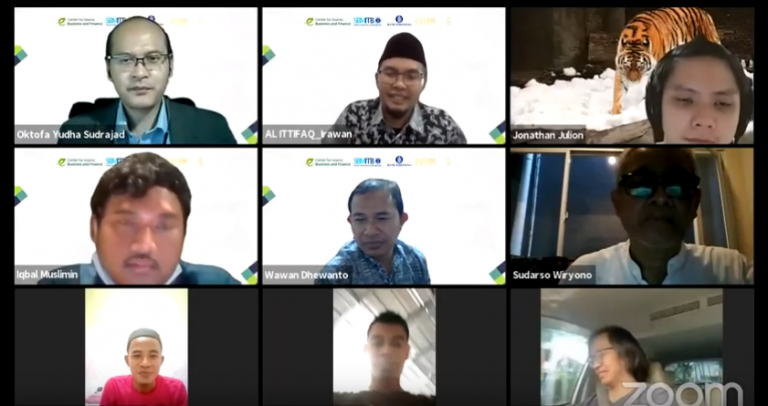Image illustration – www.santrimilenial.com
Written by Student Reporter (Deo Fernando, Entrepreneurship 2021)
Huge opportunity for Islamic boarding schools (pesantren) to go for e-commerce business. Today, Indonesia has 27.722 pesantren with 4.175.467 students (santri). “The market is big since most of students (santri) are tech-savvy millennials,” said lecturer Wawan Dhewanto, Ph.D in webinar titled Pengembangan Bisnis Pesantren Berbasis E-Commerce (13/11/2020).
Wawan explained that many Islamic boarding schools have started the business, mostly in agrobusiness and co-operative business (koperasi) platforms while mentioning about One Product One Pesantren (OPOP) program.
Let’s have a look at examples given by SBM ITB. Daarut Tauhid opens online stores in their website and other e-commerce platform such as Shopee and Tokopedia. Similarly, Pesantren Al-Ittiqaf Ciwidey focusses to sell their farm products through online while Pesantren Idrissiyyah develops minimarket business. CEO Koperasi Pondok Pesantren Modern Al Ittifaq, Agus Setia Irawan described how his Islamic boarding school utilizes land to be used for farming. “It is also inline with the idea of pesantren -that is- to contribute to economic and social development of digital society,” he said while agreeing with Prof. Sudarso Kaderi Wiryono’s opening remarks that Islamic boarding schools (pesantren) as educational institutions had a very important role in the socio-culture of Indonesian society.

There is no doubt that this is a fast-growing business considering the rise of internet users and e-commerce. In 2025, internet users are predicted to reach 221 million. Although pandemic hit, people have been bold in purchasing. Daily transaction has raised from 3.9 million to 4.8 million of transaction. Meanwhile, new online shoppers during PSBB have reached 51% until today.
In addition, Agus Setia continued with the importance of creating digital ecosystem by collaboration among pesantren and other parties related. “We need to collaborate to create this digital business’ ecosystem with innovation and technology while fostering millennials through IoT approach,” told Agus.
Meanwhile, Evermos, e-commerce in Bandung, discussed on how to connect the dots to create fintech sharia’s ecosystem. “Platform is very useful for pesantren that already has products to sell. If demand increases, they could eventually connect it to fintech sharia and create the ecosystem,” said the CEO, Iqbal Muslimin.
To talk more about financial aid, M. Anwar Bashori, as Chairman of the Islamic Economics and Finance form Bank Indonesia, explained BI’s role to develop business in Islamic boarding schools. “We have a sharia business empowerment program in pesantren, which over the past three years have developed 323 Islamic boarding schools throughout Indonesia. Bank Indonesia not only helps financially but also provides mentoring sessions to assist Islamic boarding school to run their business,” closed Anwar.
The webinar was organized by the Center for Islamic Business and Finance (CIBF) SBM ITB and moderated by Dr. Oktofa Yudha Sudrajad, Director of CIBF.




